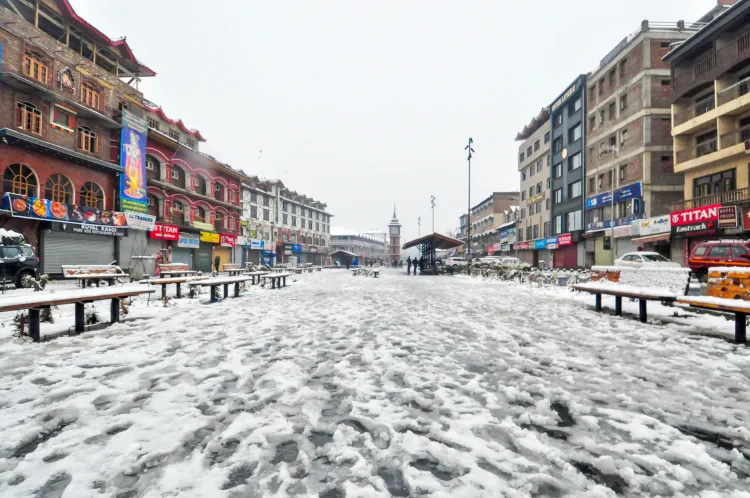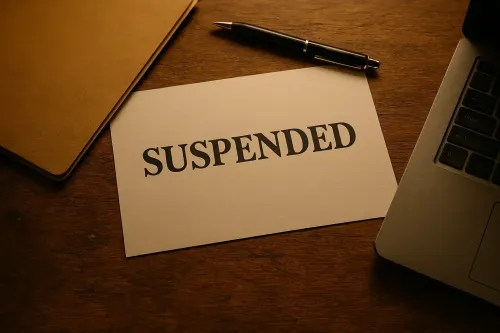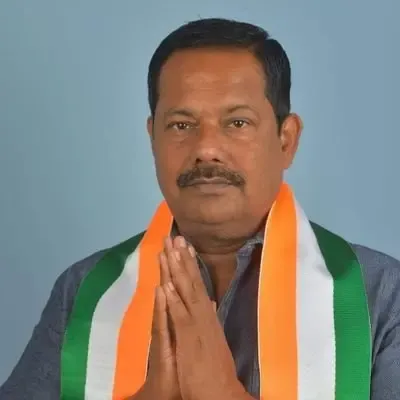Jammu and Kashmir Experiences Severe Cold Wave, Dry Conditions Expected for Next Day

Srinagar, Jan 12 (NationPress) The intense cold in Jammu and Kashmir has continued due to the shrinking difference between the maximum and minimum temperatures on Sunday. The Meteorological (MeT) office has forecasted a cold and dry spell in the union territory for the upcoming 24 hours.
The maximum temperature recorded in Srinagar city was 5.8 degrees Celsius on Saturday, while the minimum dropped to -3 degrees on Sunday.
In Gulmarg, the temperatures were 2.4 degrees for the maximum and -5.6 degrees for the minimum on Sunday. Pahalgam recorded a maximum of 4.8 degrees and a minimum of -6.2 degrees on the same day.
Meanwhile, Jammu city registered a minimum temperature of 10.5 degrees, Katra town 8.4, Batote 4.6, Banihal 0.7, and Bhaderwah 2.5 degrees.
A statement from the MeT office indicated, “On January 12, expect generally cloudy skies in the morning and forenoon, with improvements later. January 13 will be mainly clear with dry weather. On January 14, expect cloudy skies with dry conditions. On January 15 and 16, cloudy weather with light snow in isolated higher elevations is anticipated. The forecast for January 17 and 18 is generally cloudy.”
The harsh winter period, known locally as 'Chillai Kalan', spans 40 days starting from December 21 and concluding on January 30. During this time, locals wear a loose tweed overgarment called the 'Pheran' to keep warm, while a firepot woven in a willow wicker basket, known as the 'Kangri', is held underneath the Pheran. These items are essential for locals to fend off the chill during Chillai Kalan.
Health professionals have warned the public, especially vulnerable groups like children and the elderly, to safeguard against prolonged exposure to the severe cold. Hypothermia can occur due to extreme cold, leading to the constriction of blood vessels, which can result in heart attacks and failures.
Due to insufficient funding, Jammu and Kashmir struggles to provide continuous electric power supply, making the use of Pheran and Kangri indispensable for locals. Reasons cited for this power gap include pilferage, transmission losses, and the low electricity costs charged to consumers.









